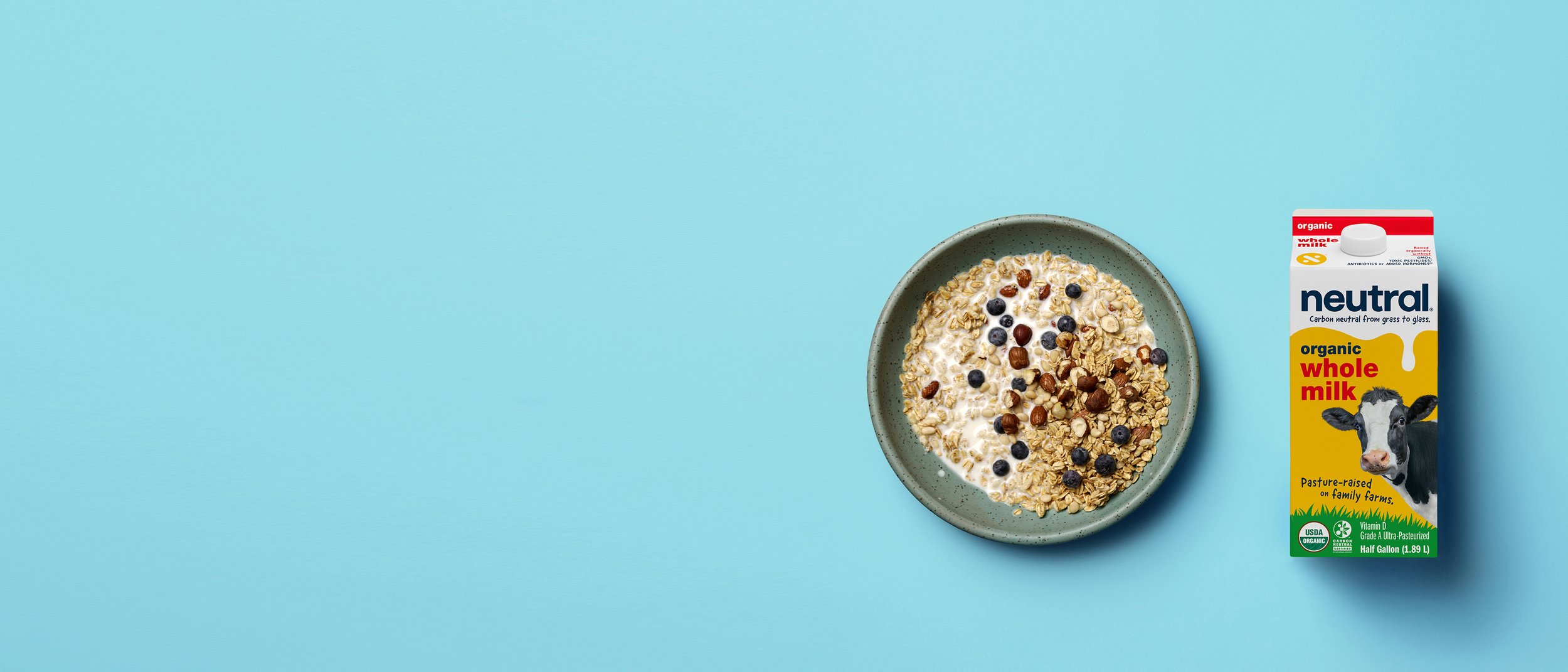
Milk for a planet worth saving
Carbon Neutral Organic Dairy
Finally, milk that’s good for you and the planet!
Certified organic
Sourced from humanely-treated, pasture-raised cows
No antibiotics, pesticides, synthetic hormones, or GMOs
Available in Whole, 2%, and Half & Half
Available exclusively at:
It’s not the cow, it’s the how
Neutral partners directly with farmers to help lower the carbon footprint of their farms. From feed supplements to manure, our team of farm experts and climate scientists are doing ALL kinds of good.
Interested in grass-fed milk? Check out our sister brand, Zeal Creamery. Pasture-raised, ethically-sourced, and regenerative, Zeal also has a legendary flavor and creamy texture that’s created a cult following. Available in whole and chocolate. Check out their butter and cheese as well!






